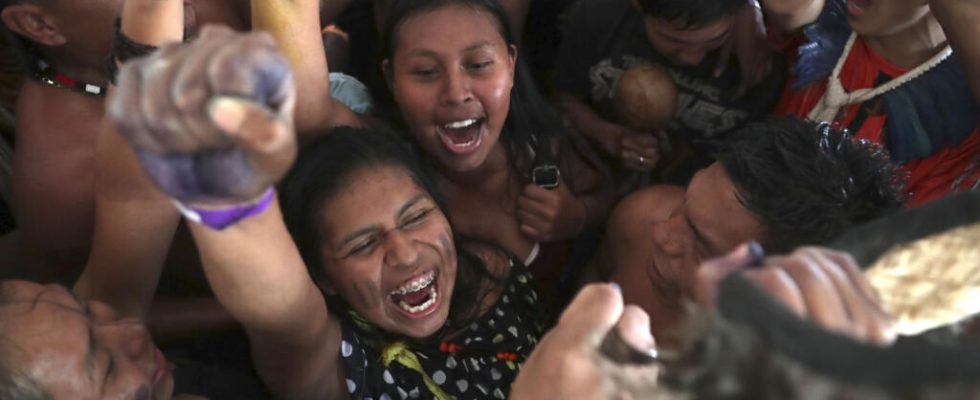2 mins
Explosion of joy in Brasilia: hundreds of indigenous people gathered in the Brazilian capital celebrated an important decision. The Supreme Court of Brazil, in a historic judgment, confirmed the right of Native Americans to their land. By nine votes to two, the eleven judges rejected a complaint from the agricultural lobby. The latter wanted only lands occupied until 1988, when the Constitution was promulgated, to be recognized. This decision of the Supreme Court is also widely commented on by the press. “ A historic day for indigenous peoples », headlines the information site AmazoniaReal. But Native Americans know that everything is not settled. First there is the question of compensation for those who will be forced to leave indigenous lands, recalls Carta Capital.
This subject will be debated by the Supreme Court starting next week. And then there is this bill in the Senate which defends the argument of the agricultural lobby and which wishes to stop the process of demarcation of indigenous lands. “ We won a first victory », Explains a manager of the organization for the defense of indigenous rights Apib, on the AmazoniaReal website. “ But we must arm ourselves now to face the looming threats. »According to this indigenous official, the Supreme Court’s decision could provoke acts of violence in illegally occupied lands.
The furious agricultural lobby
He condemned the Supreme Court’s decision. The president of the ruralist parliamentary group denounces a “ blow to the legal security of agricultural producers. »The judgment in favor of the Native Americans will provoke “ a barbarity » in the areas concerned, we read in Carta Capital. The conservative MP is counting on the vote on the bill which defends the time frame, therefore the argument rejected by the Supreme Court. The government welcomed the decision of the eleven judges. Marina Silva, the Minister of the Environment, believes that it represents a victory for indigenous peoples and their way of life. “ It is now a matter of implementing the Court’s decision », writes the newspaper Correio Braziliense.
For the coordinator of the Apib organization, Dinaman Tuxa, this means that “ the struggle continues “. There are approximately 300 ongoing trials involving disputes over indigenous lands.
